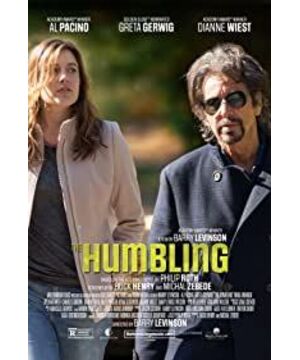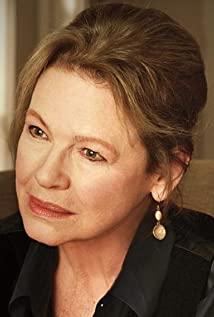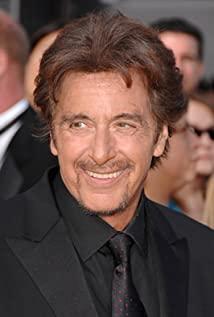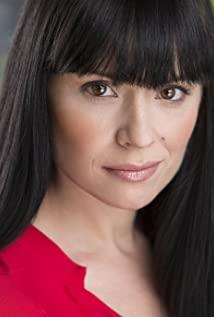Taking this film and "Birdman" together is an unfair comparison, even if the two films are so similar.
"The Humbling" came out around the same time as "Birdman." Both films were planned for shooting in 2013 ("Broadway Diary of a Mature Man" was shot faster, only took 20 days to get the first call card) and premiered at the Venice Film Festival in August 2014 and then released. The plot of the story is also very similar: the protagonists are all out-of-date movie stars, and they all turn to Broadway as a turning point, and the theme is also surrounded by the anxiety that the actor's career has never seen twilight... "Star" "Broadway" "Hollywood" The repetition of keywords and the seemingly non-existent combination of the plot, such as the moral controversy that the protagonist chooses to self-mutilate on stage, make it difficult for fans not to associate it. In the end, "Birdman" won the Oscar for best picture, and the comparison of pros and cons will automatically end.
Of course, there is absolutely no doubt about who is referring to whom. The original novel of "The Diary of a Mature Boy on Broadway" came out as early as the millennium, and the starring El Pacino bought the copyright after reading it, and then started shooting last year; "Birdman" is an all-original script. Two or even three similar films (Kronenberg's Maps to the Stars, too) that happen to come out in the same year are inseparable from the recent wave of "introspection." In the past few years, filmmakers have used the film industry as the theme, and they have not only made more and more works, but also made a trend in the film industry. In 2014, the Oscar Academy awarded "Birdman" three major projects The Gold Award may be regarded as indirect evidence that this kind of self-spying has been affirmed within the industry.
But this film is not born out of the influence of this wave. Although the subject matter is similar, Diary of a Mature Boy on Broadway is the product of director Barry Levinson's longer and more brewing.
1.
In my opinion, Diary of a Mature Boy on Broadway should actually be seen as a sequel to Barry Levinson's 2008 film What Just Happened? part.
Barry Levinson, 73, has spent nearly two-thirds of his life at Hollywood, going back and forth between director and screenwriter. He knows very well that the film industry he is in is the focus of the global eye. There are many colorful superstar artisans in the industry, and there are more outdated people who have been chronically eliminated and exiled. The sense of crisis that these people on the edge of life feel about the marginalization of life is exactly what Lee Wendeng wants to talk about; therefore, we have "Crazy Cloud" in 2008, which focused on production, and "Crazy Cloud" in 2014, which featured actors as the protagonists. The Broadway Diaries of a Mature Guy.
"Subverting Crazy Cloud", which first came out, is a story that discusses the ecology of the production industry. The protagonist played by Robert De Niro is a senior American producer who used to rely on actual performance to call the wind and the rain, but now he is infected with the curse of box office failure for every film producer. It was getting harder and harder for him to find financial resources to make films, and the last chip left was the amount of a blockbuster film, so he found all the famous directors and stars he could find, hoping to make good achievements and continue to work at Hollywood Tungsten eat.
After all, the producer is probably the most unrelated person in the entire behind-the-scenes team of the film that has anything to do with the word art. Their job is to find money and people, and they cannot and should not put art before the box office, because artistic achievements are often photographed for future audiences to gradually receive, and box office success or failure is immediately related to whether the current production team can survive. Artisan directors often hate the philistines of the production industry and see them as obstacles. This mentality is exactly the point of view of Barry Levinson's attempt to reverse in "Crazy Cloud". Trying to shoot what these artisans ignore is the price of reality. .
In the play "Crazy Cloud", director Gui Mao and big-name actors squandered a lot of money without restraint, forcing the old producers to exhaust their remaining contacts to make money; when everyone in the studio regards old people as old When the frugality of the production is a kind of tyranny of power, few people notice that although the producer has everything to lead the film, he is just as incapable of controlling the box office as any one of the staff - from the director to the acting. The result is the same pressure. When the real price sacrificed by film artists for art is thrown to the producer to bear, the producer's detached power also means detached pressure, because his authority stems from being responsible for every rich man, and this tension is not at all. No more peace of mind than any other position. When the precarious pressure of "If it doesn't sell, it's over" follows everyone like a quagmire. The wealth and dreams created by the movie halls in the past are just clouds in the sky under the curse of not knowing when they will become poison at the box office. The difference between cloud and mud is exactly the distance a filmmaker in the Hollywood Tungsten system wanders between the popular and the fringe.
"Crazy Cloud" is undoubtedly a story that is too easy for filmmakers to use. The actual production of this work is that "Fight Club" and "Into the Wild" have been produced. American producer Art Linson (Art Linson), the American producer of the other film, is also the original film, which is adapted from his biographical book "What Just Happened: Bitter Hollywood Tales from the Front Line". Li Wensen and his partner, it is too easy to get material, just to count the various lace of the films they have collaborated with is enough to attract viewers who are curious about Hollytungsten Ecology (eight hanging) to take a look.
This is also a common topical skill in insider movies in the past few years since 2013, whether it is "Birdman" or "Lonely Star Map", the names of some stars will be insinuated in the play, and some celebrities will be exposed. The ugliness of the show, showing some of the industry's vulgarities, in order to satisfy the audience's curiosity. Perhaps this technique shouldn't be condemned as kitsch, it should only be said that it is a predictable operation method, but "Crazy Cloud" has stopped at this point, and it is quite interesting to "reverse" this technique and perform it in reverse. Show it to the audience: why are these movies performed this way? As the vantage point of the commercial box office, how does the production point to the director and the actors to manipulate these methods that may cause topics?
This kind of profile still occupied a short-lived seat in "The Diary of a Mature Boy on Broadway": the agent wearing round-rimmed glasses in the play watched Al Pacino suddenly stabbed in the stomach on stage. The reaction is not to stop, but to be amazed that instant self-harm can be a means of hype, and smile happily. This smile is literally a variant of Robert De Niro's demon in the play.
2.
In 2014's Diary of a Mature Boy on Broadway, Barry Levinson chose the Hollywood Marginal as the main focus of the story for the second time; this time, he wanted to talk about actors.
"Crazy Cloud" found Godfather actor Robert De Niro to star in the production, "Broadway Diary of a Mature Guy" instead found another godfather Al Pacino to play the actor. The model this time is also similar to "Crazy Cloud": the whole film is adapted from a novel by Philip Roth. It gave birth to the birth of this film, and Li Wensen also acted as the screenwriter of the adapted script in addition to the director. Just as Al Litson is the producer of "Crazy Cloud" and also the original, Al Pacino's investment in "The Diary of a Broadway Mature Man" and his forty years of acting experience have all been achieved again. The similar situation in the play and the gods outside the play.
The protagonist of Diary of a Mature Boy on Broadway is an old actor named Simon. His situation is more intensified and marginal than that of the protagonist of "Crazy Cloud": as an actor, Simon was very popular, and until he was sixty years old, in addition to the decline in popularity, Simon still "suddenly lost his acting career" for some reason. Talent", so that no matter how hard he tried, he couldn't play the role well, and he didn't even remember the dialogue well. This situation got worse and worse, and finally one day, Simon fell out of consciousness on the stage of the play "King Lear" and was sent to the doctor for treatment. Ashamed, he announced that he would no longer perform, and would not leave the mansion in retreat. Simon is unmarried, has no children, and has no close friends, and the only time he talks to people is during regular video therapy sessions with a psychiatrist.
If the production team of "Crazy Cloud" is under the enemy, after all, it is still breathing within the rules of Hollywood's game, the protagonist of "Broadway Diary of a Mature Man" is the abstaining player who was completely declared a red card by the referee, although he is still close to his peers. , but has long been exiled. In the middle scene, the strange girl in the bar recognizes Simon, but can only squeeze out "You were really great in this movie that I used to watch when L was really little." "This kind of hurtful feeling, and the moment when he remembers the title of the movie wrong, whether Simon is willing to admit it or not, whether he can get back his acting skills or not, it will be a veritable past.
3.
However, the results of such cooperation are not very bright. This old-fashioned story, in the 106-minute film, seems very thin and almost irredeemable, and it also makes the plot seem predictable.
Audiences don't need to guess why Simon is out of breath, because fame is like duckweed, ups and downs. Simon has never been able to figure out why he lost his acting talent, and neither can we. But obviously there is an answer that can explain everything more concisely, and that is "old". Simon's body is weak, and he can't remember his lines because his memory has deteriorated. If he is not familiar with the lines, he will not be able to perform a good rhyme, and naturally it is equivalent to no talent. Old age also represents the exhaustion of beauty. Although many stars (especially male stars) are still loved by their charm in middle age and even old age, Simon, who is sloppy and petite, obviously does not have such an advantage; once his appearance is greatly reduced, it is impossible to continue to suffer welcome. Simon's life was stuck on the fringes of the film industry, for no other reason than he became a bad old man, that's all. The answer to getting old is so reasonable, but only Simon does not know why, and it is doomed to Simon's irredeemable end.
But this tragic orientation is the main reason why the whole film falls into thinness and monotony. It's too easy to predict that Simon won't end well. Simon has no friends, only money and former fame to survive. Such life experience has cultivated that he can only rely on bribes in exchange for intimate relationships (just like when he goes shopping for his girlfriend), and everything only considers his own enjoyment and no others ( He is only guilty of embarrassing his own reputation for sleeping with the daughter of an old friend), such a sad old man who lives alone, who has not left his truth in his youth, and now has nothing but dignity, will not let anything The possibility of a better life. The problem is that the whole film of "Diary of a Mature Boy on Broadway" starts from Simon's treatment course after being hospitalized, all the way to his encounter with his new girlfriend, and finally he returns to the stage for the end... It seems that the progress of the plot is layer by layer, but in fact It's just a characterization of Simon's lack of personality time and time again.
Simon was spurned at each stage for his self-righteousness without a trace of remorse, repeating the same mistakes at the next stage. It is human nature to be hard to change, but the audience actually does not need the reason that the movie has already known over and over again. From friends to agents, there is no link in the story, trying to arrange the dawn so that Simon can save himself, no one wants to lend a helping hand to Simon, which also makes the audience have no hope of reversing the plot, and can only watch this bad old man The thriving show runs through the whole play, trying to squeeze out the answer of why he is unpopular, but when the answer is about to come out (a reminder of neurosis, criticism from his girlfriend's parents...), he turns the wrong corner in his mind and commits another discussion. The behavior of scolding, the process makes people really impatient, just want to shout: Enough is enough!
4.
The phenomenon of thriving can also be seen from the performance, that is, Al Pacino's overly bloated presence.
Al Pacino is an actor who is difficult to integrate into group dramas. His aura is too personal, and he knows it himself, so he always only accepts one-man dramas. But even so, I've never seen a way to praise him like "The Diary of a Broadway Mature Guy." He is always firmly captured by the camera lens and the lighting. He is the focus of every scene and every frame. When he confesses, his mouth is photographed. When talking, only his face is photographed. Even in the long-range shots, a few of his fingers are photographed. Cope with it. Al Pacino is not only a protagonist in this film, but also a huge set prop. He must appear in all the pictures, using his own limbs and nasolabial lines to create fullness in the picture, but not because of himself The performance energy, but the director's deliberate composition arrangement. In the story, when two lesbians start to rain on the bed, the camera doesn't even bother to shoot the woman's shadow, but sticks to Al Pacino's frustrated face (and wears a mask) so much Silently read: Barry Levinson, you are too confident in the charm of Al Pacino, right?
Compared with the huge figure of Simon and Al Pacino, the other characters are empty and props, the scenes are insignificant, and they can't even play a harmonious role in the picture, which makes the whole film "no one is right" inside and outside the play. play". The only one who can barely stand up to Al Pacino in terms of role and power is Simon's girlfriend, played by Greta Gerwig. Her love history takes up 50% of the entire film, and is the second most fully portrayed role in the whole play. The only wonderful imagery in the whole play also comes from her, the scene where she swims in the pool outside the mansion. While she was racing her youthful body in the water, Simon stared blankly at the mansion, worrying that the cost of heating the swimming pool would not make ends meet, and was unwilling to swim together in the pool. This scene is so beautiful that the old man slowly empties everything he has to feed the young girl, expressing the mood of the distant view incisively and vividly, which is more appropriate than Xing. However, even so, Greta Jiewei is still under the serious bias of the overall script, and there are too many lesbian and Electra complexes unable to surpass the stereotype of the characters, which can only be the bright spot of the dawn.
5.
These thinness and bloat make Barry Levinson's Diary of a Mature Boy on Broadway a failed attempt after all.
Not only is the drama more drier than "Crazy Cloud", but Simon's theme of the fringe does not touch the heart of the audience. The audience who watched "Birdman" must be quite familiar with Simon's final bloody Broadway performance. Aside from the real Broadway industry's scolding of these performances (which in reality simply would not be allowed), Simon's throwaway is unsympathetic. Movies make us feel the same way—depressingly empty.
Alas, I ended up mentioning "Birdman" anyway...
View more about The Humbling reviews











